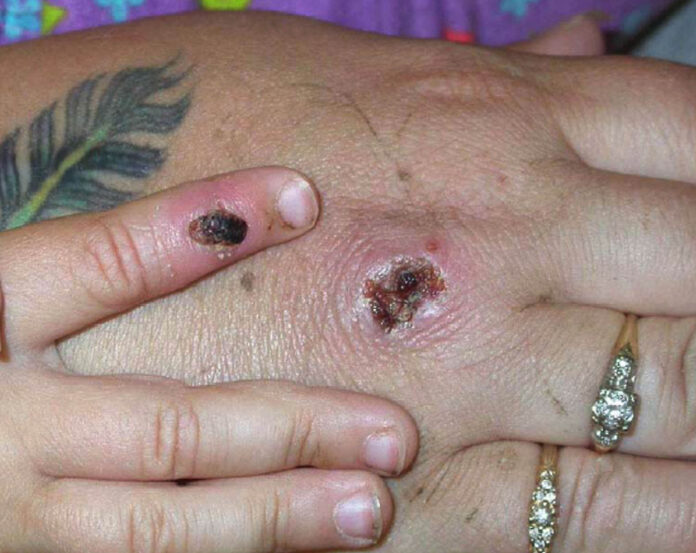Quebec has reported 15 confirmed cases of monkeypox as of Tuesday, up from just five on Friday.
The Health Ministry released few details about the outbreak but said Montreal public health had been investigating cases of oral and genital ulcerations possibly linked to monkeypox since May 12.
The investigation was prompted by a recently identified case in the United States in which an American citizen had travelled to Canada from the U.S.
Canada’s Public Health Agency says the person used private transportation to get to Montreal and may have been infected before or during his visit to the city.
The cases mark the first time the rare infectious disease has been found within Canadian borders, according to the Public Health Agency of Canada (PHAC).
The agency said last week it was investigating about two dozen possible cases of monkeypox in the country in addition to the confirmed cases in Quebec.
Toronto Public Health said over the weekend it was investigating Ontario’s first suspected case.
Monkeypox is a rare disease that comes from the same family of viruses as variola. That virus causes smallpox, which the World Health Organization declared eradicated around the globe in 1980. It is also linked to the vaccinia virus used in the smallpox vaccine.
The disease is generally found in parts of central and West Africa and can sometimes cause infections in people after exposure to infected animals or contaminated materials.
Suspected monkeypox cases in Canada spark public health concerns
Although uncommon, the virus can also spread from person to person through contact with blood, body fluids or lesions on the skin or inside the mouth or throat of an infected person. It can also be contracted by sharing clothing, bed linens or other common items that have been contaminated by a sick person’s body fluids or sores. Respiratory transmission is also possible through coughing or sneezing.
Trending Stories
At least 15 dead after shooting at Texas elementary school: governor
Trudeau faces chants, pounding drums as he walks through crowd at Kamloops memorial
Health authorities in Quebec and Canada said the risk of transmission in social settings is low, since close and prolonged contact is required.
In a release posted to its website, Quebec’s health ministry said the most commonly reported symptoms were skin lesions in the mouth area and on the genitals.
Other symptoms to watch for include fever, night sweats, headaches, swollen lymph nodes and joint or muscle pain. Health officials warn those symptoms can appear before or at the same time as sores on the skin.
Anyone who has had close contact with a suspected case or with someone presenting symptoms of monkeypox is being asked to be on the lookout for the appearance of symptoms for a period of 21 days.
A close contact is described by the ministry as someone who lives under the same roof as an infected person or has had sexual relations with an infected person.
Because it is possible to transmit the disease up to five days before the appearance of symptoms, contacts are being asked to avoid having sexual relations.
People living with someone presenting symptoms should limit their contact with that person and avoid sleeping in the same bed. Wearing masks is also recommended.
Someone who is ill with the disease or presenting symptoms should consult a doctor and isolate themselves from other members of a household as much as possible. Open sores should be covered and masks worn when in close proximity with others. The isolation period can end once the sores have crusted over.
In most cases, the illness will disappear on its own within two to four weeks, although in very rare cases complications can arise.
Health Department spokesperson Robert Maranda says Quebec is considering ordering vaccines against the disease from the federal government.
— with files from Global News’ Sean Boyton and The Canadian Press
© 2022 Global News, a division of Corus Entertainment Inc.



